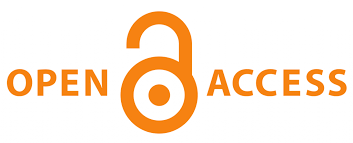Conceptual model of the formation of flying skills in the process of training using flight simulators
- Authors: Godunov A.I.1, Kuatov B.Z.2, Yurkov N.K.1, Kurtaev S.Z.3
-
Affiliations:
- Penza State University
- Air Defense Force Institute of the named after T. Begeldinov
- Samara State Aerospace University
- Issue: Vol 13, No 4 (2014)
- Pages: 7-15
- Section: AIRCRAFT AND SPACE ROCKET ENGINEERING
- URL: https://journals.ssau.ru/vestnik/article/view/2414
- DOI: https://doi.org/10.18287/1998-6629-2014-0-4(46)-7-15
- ID: 2414
Cite item
Full Text
Abstract
Mechanisms of perceptive image formation are presented in terms of the proposed paradigm. These mechanisms make it possible to determine the mechanism of flying skills formation in the process of flying personnel simulator training. It is shown that basic and primary training is characterized by the fact that, apart from improving the fundamental knowledge, it leads to the formation and development of perceptive intellectual images that form skills when combined with the knowledge. The process of skills formation consists in operator’s training in fulfilling purposeful mental actions with apperceptive and perceptive sensory and motor images, while the process of knowledge development implies carrying out training sessions on the accumulation of such images. Skills development is similar for different typical situations, but each situation requires particular mental actions depending on the combination and sequence of image variation. Each prospective pilot has his own specific settings of elements of sensory, motor and intellectual systems, so in the course of training elements of these systems are adjusted to each other in accordance with the particular type of flight activity. Such adjustment can also be carried out for typical situations that differ in priorities in the use of the operator’s elements. Possible conflict situations in the process of skills formation and implementation are described in the article. A conceptual model of a set of skills necessary for the use of aircraft and its systems in typical situations is presented.
About the authors
A. I. Godunov
Penza State University
Author for correspondence.
Email: Godunov@pnzgu.ru
Doctor of Science (Engineering), Professor
Professor of the Department of Automation and Telemechanics
Russian FederationB. Z. Kuatov
Air Defense Force Institute of the named after T. Begeldinov
Email: kuatov.baurjan@mail.ru
Deputy Head for Academic and Research Activity
KazakhstanN. K. Yurkov
Penza State University
Email: yurkov_NK@mail.ru
Doctor of Science (Engineering), Professor
Head of the Department of Radioelectronic Equipment Design and Production
Russian FederationS. Z. Kurtaev
Samara State Aerospace University
Email: sabit5@mail.ru
Postgraduate student of the Aircraft Maintenance Department
Russian FederationReferences
- Dikarev V.A. Avtomatizatsiya trenazhernoy podgotovki operatorov radioelektronnikh obektov [Automatization of electronics operators’ simulator training] / ed. by V.V Sisoyev. Moscow: Radiotekhnika Publ., 2002. 168 p.
- Zaytsev V.S. Sistemniy analiz operatorskoy deyatelnosti [System analysis of operator’s activity]. M: Radio i svyaz' Publ., 1990. 120 p.
- Yurkov N.K. Synthesis of a Conceptual Model of a Subject Domain. Characteristic Features of Modeling Complex Systems // Measurement technique, 2004. V. 47, no. 2. P. 128-133. doi: 10.1023/B:METE.0000026210.06584.ff
- Godunov A.I, Kemalov B.K, Yurkov N.K. Providing complex conformity of aviation simulators // Izvestiya vysshikh uchebnykh zavedeniy. Povolzhskiy region. Tekhnicheskie nauki. 2011. No. 3 (19). P. 15-24. (In Russ.)
- Godunov A.I., Kvyatskiy Y.G., Yurkov N.K. Synthesis of computer-aided system of evaluating pilot control quality using flight simulators // Izvestiya vysshikh uchebnykh zavedeniy. Povolzhskiy region. Tekhnicheskie nauki. 2012. No. 1 (21). P. 58-64. (In Russ.)
Supplementary files




















